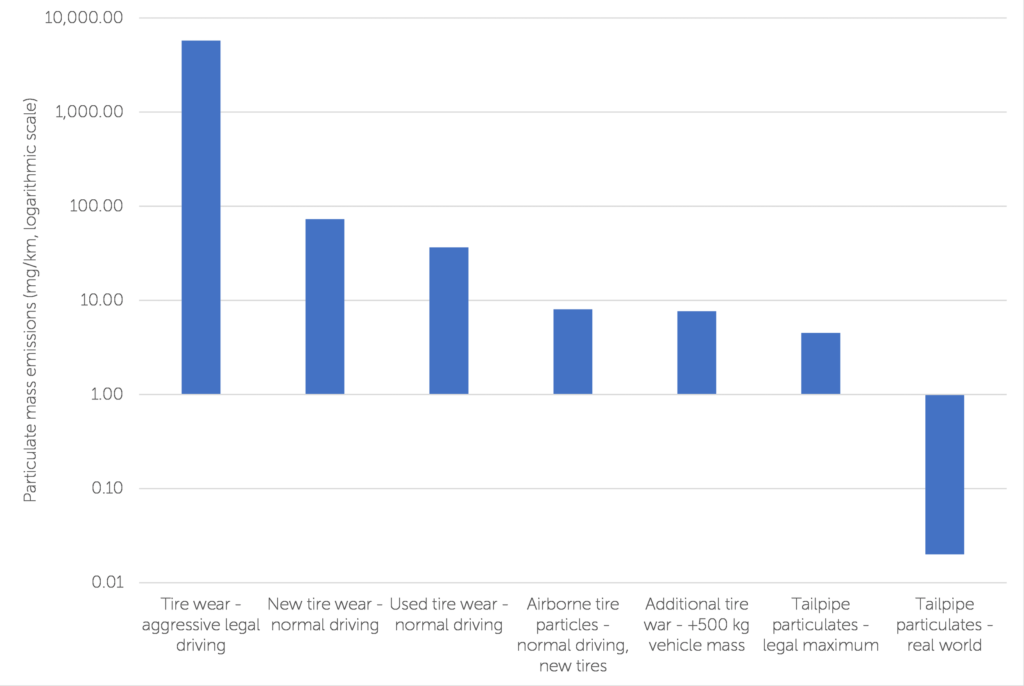The increasing awareness of climate change has led to a rise in popularity of eco-friendly transportation choices, with electric vehicles being seen as a more environmentally friendly option compared to traditional petrol and diesel cars due to their lower greenhouse gas emissions.

However, a new study by Emission Analytics disputes the commonly held belief that electric cars are completely environmentally friendly. The study highlights the issue of particle pollution coming from brakes and tires in both electric and traditional cars.
The main discovery is that electric vehicles may release a considerably larger amount of particulate matter (PM 10) from their brakes and tires compared to gas-powered vehicles with effective exhaust filters, possibly up to 1,850 times more.

Emission Analytics is worried about the increased wear on tires of electric vehicles due to their heavier weight, leading to the release of harmful chemicals into the air. This is mainly because tires are typically made from synthetic rubber produced from crude oil.
The study also highlights the impact of battery weight. EVs typically have heavier batteries compared to traditional petrol engines. This extra weight puts more strain on the brakes and tyres, accelerating wear and tear.

According to the study, the emissions from tire wear of an electric vehicle with a 1,100 pound battery (half-tonne) could be over 400 times higher than exhaust emissions from a modern petrol car.
This study emphasizes the importance of including brake and tire particle pollution in assessments of the environmental impact of electric vehicles, instead of solely focusing on tailpipe emissions.
Reference- Emission Analytics, Wall Street Journal op-ed, NDTV website, Inside EVs






